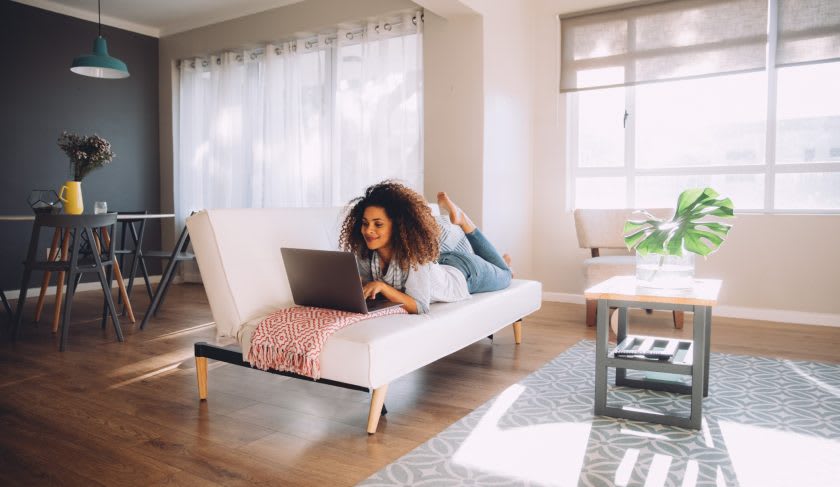
The idea of waiting to have a partner before getting a foot (stiletto-shod or not) onto the property ladder is so yesterday. Women—particularly single women—have become a dominant force in the real estate market.
In 2017, single, female buyers accounted for nearly one in five homebuyers—the second-most common household buyer type behind married couples, according to the National Association of Realtors.
Of course, single, female homebuyers aren’t all alike: We’re women who’ve been successful careerwise but haven’t married (and may or may not want to), recent divorcees looking for a fresh start, retirees looking for a place to spend their golden years. No matter why you’re in the market, buying a home on your own can be a smart financial move. Follow these steps to dominate your home purchase:
Think Long Term
While home prices have been headed upward in recent years, there’s no guarantee that the value of the property you purchase will continue to increase. The longer you stay in the home, however, the more likely you’ll turn a profit when you do eventually sell. Have a plan for what you’ll do with the property if your life circumstances changes before you’re ready to sell it. “Keep your options flexible,” says Massachusetts-based Realtor Dana Bull. “Can someone move in with you, or can you hold onto it as a rental?”
Meet With a Lender, But Run Your Own Numbers
You’ll want to speak with a few lenders and get prequalified for a mortgage. A prequalification letter not only makes you a more competitive buyer, but it also shows you how much money a bank would approve for you to borrow. Remember, however, that the banks consider your current financial picture and don’t factor in discretionary spending. Take a look at your budget to figure out how much you can really spend (which may be less than the bank thinks), after factoring in your lifestyle and potential future expenses. In addition to your mortgage, insurance and property taxes, you’ll want to factor in the expenses of maintaining a home, such as lawn care or utilities.
Build a Killer Team
Working with experienced Realtors and lenders is key to making the process go as smoothly as possible. Interview at least three Realtors before selecting one, and ask for—and check—references. Look for pros with whom you feel comfortable going through what can be a stressful and emotional process. “It’s very important that you feel like you can ask for the help you need from any professionals on your team,” says June Chow, a wealth manager with LPL Financial. “Feeling afraid or bashful about asking questions is not a good way to start a life journey like buying a home.”
Beef Up Your Emergency Fund
While it’s always important for homeowners to have an emergency fund, it’s even more important for single buyers who don’t have a partner who can pick up the slack if they lose their job or have a medical emergency. Plus, homeownership means a variety of new potential unscheduled expenses—from broken water heaters to fallen trees—for while you’ll now have to be prepared. Aim for a minimum of six months’ worth of expenses in a liquid account—and be sure to replenish the account after you dip into it.
Confidence is Key
It’s easy to get emotional when you’re buying a home—from getting excited when you find the house of your dreams to feeling insulted when an offer is rejected or competitive in a bidding war. Do your best to remember that the purchase itself is merely a business transaction and not to take the individual highs and lows of the process personally. Remaining calm while you’re buying a home will make you even more confident once you’ve completed the purchase that you’ve made the right choice.




































































































